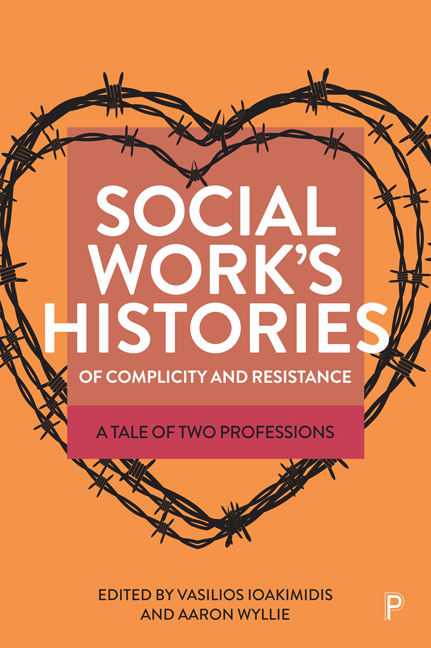Book contents
- Frontmatter
- Contents
- Notes on contributors
- Acknowledgements
- Preface
- Part I Making amends with the past
- Part II Legacies of colonialism and racism in social work
- Part III Social work’s contested ideologies
- Part IV Social work’s complicity with institutionalisation and detention
- Part V Survivor perspectives and contemporary reflections
- Index
15 - ‘We want social workers to hear our story’: learning from parents whose children were taken away
Published online by Cambridge University Press: 20 January 2024
- Frontmatter
- Contents
- Notes on contributors
- Acknowledgements
- Preface
- Part I Making amends with the past
- Part II Legacies of colonialism and racism in social work
- Part III Social work’s contested ideologies
- Part IV Social work’s complicity with institutionalisation and detention
- Part V Survivor perspectives and contemporary reflections
- Index
Summary
Introduction
This chapter has its origins in an unexpected encounter that took place in 2017. I was attending a narrative therapy conference and heard a keynote presentation entitled ‘ “I’ll always be a Mum”: young women talk about finding peace after their children are adopted’. After the three young women had spoken, we listened to a small number of conference attendees reflect on what they had heard, in the role of ‘outsider witnesses’, an interesting practice from narrative therapy (Carey and Russell, 2003). As I listened, I mused on my own role and realised that I had more than one that was relevant to that moment. While I was attending the conference primarily as an independent practitioner and trainer specialising in the solution-focused approach (Shennan, 2019), I was also at that time the Chair of the British Association of Social Workers (BASW), and I had formerly practised as a social worker in the system that these young women had been subject to. While I was also a witness to the parents’ account, rather than being fully outside of it, I felt as if I was somewhere in ‘the space between’ the positions of insider and outsider (Corbin et al, 2009). I was implicated, in a way that the other mental health professionals there (I did not come across any other social workers) were not.
During their presentations, one parent said, “I think it's really important for social workers to see what's going on”, and another that she wanted social workers to hear their story. Afterwards, I spoke to the two clinical psychologists who ran the service that was supporting the parents, and through them to the parents themselves. I explained my role with BASW and that this meant I should be able to help their story reach more social workers. I later interviewed two of the parents, some of the material from which appeared in a magazine article (Shennan, 2017– 18), and I co-wrote a blog post with one (Shennan and Karen, 2018), both of which pieces I shall draw from in this chapter. Before presenting the main themes that emerged from these interviews, I will share some reflections on and experiences of the problematic nature of the social work system and practices of which I have been a part.
- Type
- Chapter
- Information
- Social Work's Histories of Complicity and ResistanceA Tale of Two Professions, pp. 233 - 243Publisher: Bristol University PressPrint publication year: 2023



